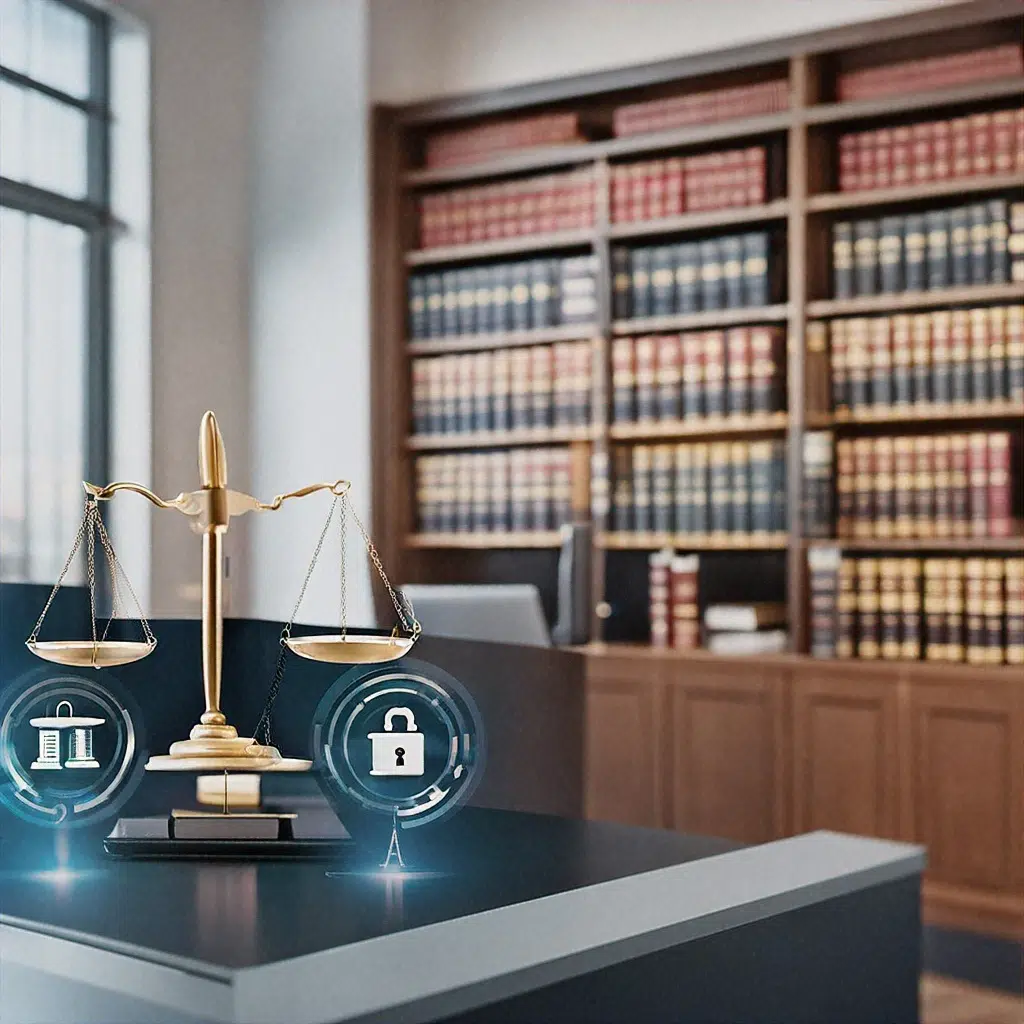Legal practices in New Jersey face an array of technology and compliance challenges. Between increasingly complex regulatory requirements and the imperative to keep client data secure, choosing the right IT support for law firms has never been more critical. Beyond troubleshooting computers or servers, true IT support in the legal industry means forming a strategic partnership designed to safeguard sensitive matters, meet stringent compliance demands, and keep your practice running efficiently – all while providing scalable solutions to help you grow. This article explores the best practices, solutions, and benefits tailored IT services bring to New Jersey’s law firms, and how taking a proactive approach to technology management safeguards both your clients and your reputation.
Navigating Legal Industry Compliance: Why Specialized IT Support Matters
Regulatory compliance in the legal sector is complex. Law firms not only handle highly confidential client information but also frequently collaborate with other lawful entities, courts, and external counsel. In New Jersey, legal offices must align their operations with national and state laws, including the New Jersey Data Breach Notification Act, HIPAA (for those handling health information), GDPR (if serving clients abroad), and rules from the ABA regarding data protection. As cyberattacks targeting professional services climb, a breach could result in severe professional consequences, legal liabilities, and lost client trust.
Specialized IT support for law firms understands the nuances of legal technology and compliance. Generalist IT providers may not be equipped to address matters like eDiscovery preservation, secure file sharing for casework, or legal document management systems that require both data security and ready accessibility. Providers offering IT compliance support in NJ are familiar with the obligations law firms face, such as:
- Encrypting and securely storing all digital client records
- Managing and auditing access to files
- Implementing email security and secure communication tools
- Ensuring legal document management systems are both efficient and compliant
- Advising on regulatory developments that impact IT policies and retention schedules
Moreover, New Jersey’s legal market is competitive and fast-paced. Law firms benefit from IT helpdesk services offering 24/7 availability, enabling attorneys and staff to resolve issues quickly, prevent downtime before it happens, and ensure court deadlines are never missed due to IT failures. From initial setup through continuous monitoring, strategic IT consulting services in NJ help legal executives build, evolve, and maintain a compliant technology foundation tailored to the unique demands of the profession.
A trusted technology partner will not only execute security and compliance tactics but will also educate your team, run training simulations, and provide ongoing policy updates so staff understand their responsibilities in maintaining privacy and regulatory coverage. This commitment to industry-specific best practices is what elevates specialized IT support for law firms above a generic solution.
Safeguarding Law Firm Data: Cybersecurity Protection and Risk Mitigation Best Practices
The legal industry is a prime target for cybercriminals due to the volume of confidential and financially sensitive data it maintains. From wire fraud attempts to phishing targeting high-profile clients, law firms in NJ must be perpetually prepared. Implementing robust cybersecurity compliance services NJ law offices need isn’t simply about adding antivirus software – it’s about building a multilayered defense and actively managing risk on a continual basis.
Key best practices that set effective IT support for law firms apart include:
Advanced Threat Detection and Monitoring
- Continuous monitoring of network activity and endpoints is essential for rapid identification and containment of potential threats. This aids in uncovering unauthorized access, malware, ransomware infections, or suspicious downloads before they escalate. Legal IT support teams deploy monitoring tools and coordinated security operations tailored to SMB law firm needs, detecting subtle threats that could otherwise go unnoticed.
Multi-Factor Authentication (MFA) Across All Platforms
- With remote work and mobile access now standard in the legal profession, deploying MFA is crucial. This ensures that even if a password is compromised, unauthorized actors cannot gain access to sensitive case files, billing systems, or client correspondence.
File Encryption and Secure Collaboration
- Legal practices must protect data both at rest and in transit. Encrypting hard drives, file servers, backups, and email contents ensures confidential documents can never be used by malicious actors, even in the event of physical theft or breach. Secure cloud collaboration platforms approved for legal use make it possible to share large evidence files, discovery databases, or deposition transcripts safely within your team or with external counsel.
Regular Security Audits and Compliance Reviews
- Scheduled IT compliance audits are essential for demonstrating regulatory due diligence and identifying vulnerabilities before a real-world incident occurs. These reviews include assessing firewall rules, password policies, database encryption, data retention practices, and third-party vendor controls.
User Training and Social Engineering Simulations
- A comprehensive cybersecurity plan must include rigorous, ongoing staff education. From simulated phishing campaigns to periodic security reminders, your legal IT support partner helps your professionals recognize and quickly respond to red flags – the human layer is often the most critical defense.
Business Continuity and Disaster Recovery
- Unexpected incidents – from ransomware to natural disasters – can disrupt your practice for days or weeks. A robust disaster recovery plan covers regular, encrypted backups offsite, with clear processes for legal data restoration, so you resume operations swiftly, meet court obligations, and uphold client expectations.
Cybersecurity is not a one-and-done project but an ongoing strategic focus. As cyber risks evolve, managed IT support ensures continual adjustment to security posture. According to a 2024 risk report by the ABA, more than 25% of all law firms reported a security breach or cyber incident in the past year. This underscores the need for a proactive, legal-focused IT approach that closes compliance gaps and protects law firm reputations.
Optimizing Legal Practice Operations with Proactive IT Helpdesk and Consulting
IT helpdesk services are often misunderstood as simply “fixing computers when they break.” For modern law firms, a proactive IT helpdesk is integral to productivity, responsiveness, and client service. When the stakes are high and timeliness is essential – think last-minute e-filings, emergency client consultations, or rapid evidence review – every minute lost to technology issues impacts both client outcomes and firm success.
A legal-focused IT helpdesk in NJ offers:
Rapid Response by Local and Remote Technicians
Legal matters rarely adhere to a strict 9-to-5 schedule. 24/7 support ensures attorneys and staff can obtain immediate help for urgent issues whether in the office, remote, or in court settings. Local presence matters: technicians familiar with the unique IT environment of New Jersey law firms can often resolve problems faster and with greater context-awareness than distant or inexperienced generalists.
Expertise with Legal Applications and Workflows
Many IT teams are adept with generic business applications, but legal technology includes document management platforms (such as NetDocuments, iManage, or Worldox), sophisticated billing/timekeeping systems, eDiscovery databases, secure client portals, and court calendaring solutions. Law firm IT support must encompass expertise in configuring, updating, and troubleshooting these systems – ensuring reliability and compliance.
Onboarding and Offboarding for Staff and Attorneys
Managing secure, compliant employee onboarding/offboarding is vital for controlling access to sensitive matters. Your IT support partner should offer streamlined processes for assigning resources, permissions, device configuration, and timely deactivation of accounts when attorneys move on.
Technology Lifecycle Planning and Asset Management
Optimizing hardware and software refresh cycles ensures your practice remains productive and secure. An IT consulting services NJ team helps design technology roadmaps aligned with your firm’s budget, compliance objectives, and long-term goals, reducing waste while planning for future needs.
Remote Work Enablement and Hybrid Office Solutions
Increasingly, law firms must support secure mobile access, efficient remote litigation support, and hybrid in-office/home environments. IT support tailored to law firms equips your team with secure VPNs, encrypted laptops, remote printing, court teleconference solutions, and cloud-based evidence review tools.
IT Policy Development and Staff Training
A proactive helpdesk not only resolves technical issues but contributes to developing and enforcing IT policies. Routine training sessions for lawyers and support staff – covering acceptable use, privacy, and compliance requirements – foster a security-first, efficiency-oriented office culture.
Efficient Case Collaboration and Workflow Automation
Modern IT support enables workflow automation, such as automated document assembly, digital intake forms, and secure client communications. This allows lawyers to spend less time on routine tasks and more time on high-value casework, directly enhancing firm profitability.
By blending expert helpdesk support with ongoing IT consulting, law firms unlock efficiencies at every stage of their technology journey. Consultants with experience in regulated industries ensure that upgrades, technology adoption, and process changes never put compliance or client confidentiality at risk. According to Law.com’s 2024 Legal Technology Survey, firms investing more in IT helpdesk and process automation consistently outperformed those with ad-hoc, reactive support.
Connect with Blueclone Networks to explore customized solutions for your business—book your discovery call today!
Building an IT Compliance Foundation: Policies, Audits, and Documentation
Compliance is never accidental. Successful law firms in New Jersey build sound IT compliance support NJ frameworks by implementing documented policies, ongoing audits, and readiness plans that withstand regulator and client scrutiny. Achieving this requires a systematic approach designed around the particular regulatory, ethical, and client requirements facing the legal sector.
Documented IT Policies for Legal Practices
At the core of compliance is a comprehensive set of written policies, outlining how data is managed, protected, and retained throughout its lifecycle. This includes:
- Data Classification and Handling: Rules for how sensitive information is identified, stored, and transmitted.
- Access Controls: Policies to ensure only authorized staff or partners can obtain case files, financial data, or e-discovery materials.
- Device Security: Mandated encryption, device tracking, and remote-wipe in case of loss or theft.
- Incident Response: A well-defined plan for handling security breaches, data loss, or regulatory investigations, with assigned roles and communication channels.
- Data Retention and Destruction: Timelines and procedures for retaining or securely destroying files according to NJ and federal law, as well as client agreements.
Regular Compliance Briefings and Training
Cybersecurity compliance services NJ offerings must include ongoing education. Legal staff should receive quarterly (or at least annual) workshops on the most recent regulatory changes, tactics for identifying phishing or social engineering attempts, and best practices for protecting attorney-client privilege in electronic communications.
Scheduled Cybersecurity Audits and Risk Assessments
While internal IT audits are important, partnering with a managed services provider experienced in legal compliance brings an outside perspective. This includes:
- Reviewing firewall and data-loss-prevention configurations
- Testing for vulnerabilities through ethical penetration testing or simulated attacks
- Tracking access and change logs in case management or digital evidence platforms
- Auditing email, messaging, and file-sharing practices for confidentiality risk
Compliance-Ready Documentation
Regulators and courts may request evidence of compliance at any time. Your IT support partner should help maintain:
- Audit trails of all system and user activity
- Proof of regular patching and software updates
- Logs of user training completion
- Documented security incident reviews and responses
Vendor and Third-Party Oversight
Law firms increasingly rely on third-party vendors (for document storage, court e-filing, or outsourced legal research). Contracts with these providers must be carefully reviewed for IT security guarantees, compliance clauses, and incident notification obligations. An IT consulting services NJ expert with compliance experience can manage these relationships, perform due diligence, and ensure your vendors meet or exceed your own security standards.
By embedding compliance at every level – from policy writing to day-to-day operations – law firms create a strong foundation that not only reduces liability but also builds trust with clients and courts. This approach enables attorneys to focus on client advocacy, knowing their technology environment stands up to scrutiny.
Integrating Cloud and AI Solutions for Enhanced Client Service and Data Protection
The legal sector’s use of cloud and artificial intelligence (AI) technologies has transformed how attorneys collaborate, manage evidence, and serve clients. However, moving sensitive casework into the cloud or deploying AI client tools introduces new compliance and security considerations – underscoring the need for expert IT support for law firms that understand these rapidly evolving solutions.
Secure Cloud Solutions Pre-Configured for Legal Compliance
Cloud services now support everything from secure case file management to encrypted email, eDiscovery hosting, and collaborative legal research. When properly deployed:
- Data is stored redundantly across multiple secure locations, reducing risk of loss.
- Advanced access controls ensure only authorized legal staff see sensitive matters.
- Security updates and patches are managed automatically, reducing vulnerability windows.
- Audit trails are generated for every user action, simplifying regulatory review.
A technology partner offering IT consulting services NJ helps law firms assess, select, and configure cloud tools that meet both HIPAA, GDPR, and local NJ requirements. Critical SaaS applications for legal billing, court calendaring, matter management, or digital signature workflows can be tightly integrated into existing processes, maximizing productivity while maintaining compliance.
AI-powered Legal Tools and Virtual Assistants
AI-driven solutions are increasingly helping law firms automate repetitive tasks, such as:
- Sorting and summarizing discovery documents
- Generating routine intake forms and contract templates
- Scheduling court appearances and meetings via AI-powered phone agents or chatbots
These tools boost productivity but may require careful vetting to ensure data processed by the AI never crosses out of approved jurisdictions or is exposed to external vendors lacking compliance credentials. Your IT partner ensures that AI integrations are private, local, and fully auditable, aligning with the same security controls as your core client systems.
Enhancing Client Confidence and Service Delivery
Cloud and AI platforms present opportunities for improved client service – from providing always-on client portals to facilitating real-time document sharing and secure digital signatures. With tailored IT support, law firms offer seamless, convenient experiences to clients while maintaining rigorous security standards.
To deploy these technologies safely and productively, partner with IT experts who combine technical skills with a deep understanding of both legal practice and regulatory obligations in New Jersey. According to a 2024 cloud adoption report from ILTA, 78% of law firms increasing cloud adoption cited expert external IT support as their critical success factor.
Frequently Asked Questions: IT Support for Law Firms in New Jersey
Specialized IT support for law firms addresses legal-industry-specific compliance obligations (like protecting attorney-client privilege and adhering to regulations such as HIPAA or the New Jersey Data Breach Notification Act). Such providers understand legal software workflows, the need for rapid issue resolution, and the critical importance of confidentiality. They also advise on best practices for secure email, document management, and file sharing unique to legal teams.
Managed IT support integrates continuous monitoring, access controls, encryption, staff training, and policy development – all essential for compliance. Regular audits and system updates help law firms demonstrate due diligence and prepare for any regulatory review, while a proactive IT partner ensures that new technology deployments don’t introduce compliance risks.
Cybersecurity priorities include advanced threat monitoring, multi-factor authentication, encrypted data storage, regular vulnerability assessments, and user education programs. Law firms must also maintain robust incident response plans and disaster recovery strategies – all delivered within a legal-compliance framework.
Yes – provided these technologies are properly selected, configured, and monitored for legal compliance. Partnering with an IT support provider who specializes in law firm needs ensures that cloud and AI solutions are secure, keep NJ data within jurisdiction, and feature required audit controls.
Regular collaboration with IT compliance support in NJ is essential. This involves scheduling annual or quarterly policy reviews, frequent security training for staff, and ongoing risk assessments to adapt to emerging threats and changing regulations. An experienced IT partner keeps your practice’s technology, documentation, and protocols up-to-date and ready for any compliance audit.





